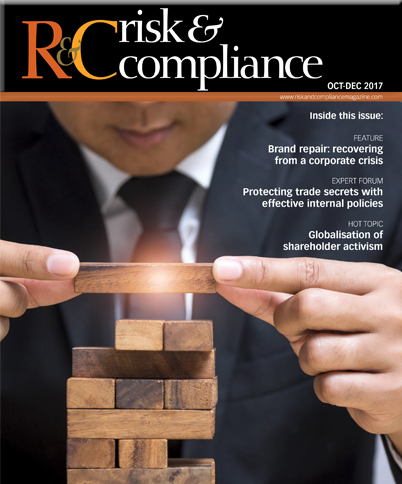SELECTING CORPORATE LEGAL ADVISERS
Selecting the right corporate advisers, both internally and externally is increasingly important. Companies must get the right advice from advisers who understand the business and its circumstances. But choosing an expert with the right level of experience and knowledge, and at the right cost, can be a challenge.
Internal advisers
In light of the ever-mounting compliance, regulatory, litigation and other legal challenges companies face today, the role of the general counsel (GC) is vital. Corporate scandals, the global financial crisis and the increasing litigiousness of the modern corporate world have placed a considerable burden on legal teams, and this, in turn, has elevated the GC. These individuals now contribute to a broad range of board matters and activities, including board composition and competencies, compensation, crisis management, communication and, of course, selecting external advisers. In order for the GC to effectively discharge his or her duties, a strong relationship with the company’s senior management is essential
“GCs are the towers of strength guiding the company through difficult legal challenges, often also handling internal and external communication,” says Jörg Häring, general counsel of Siemens power and gas division. “Given the increasing challenges deriving from legal implications, for example, complex litigations, compliance and regulatory issues, the role of GCs will gain even more importance in the coming years.”
Globalisation has brought many changes to the way companies operate, which for GCs, means dealing with a host of different challenges on a daily basis, from navigating potential corruption and rule of law matters to concerns about corporate reputation, modern slavery in supply chains, intellectual property infringement, and safety threats employees. GCs must ensure the organisation is compliant with various national legislations, and understand the political and cultural outlook of the jurisdictions in which they operate. In short, GCs must keep a number of plates spinning at all times. This requires them to proactively identify and address risks.

